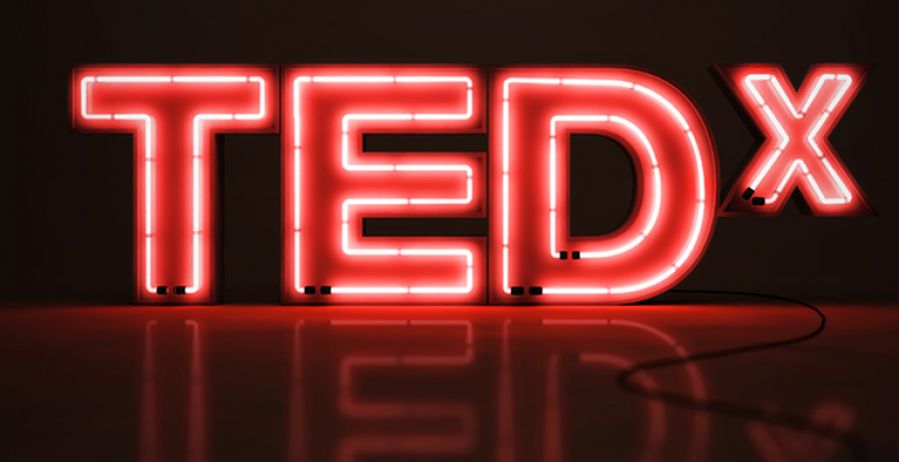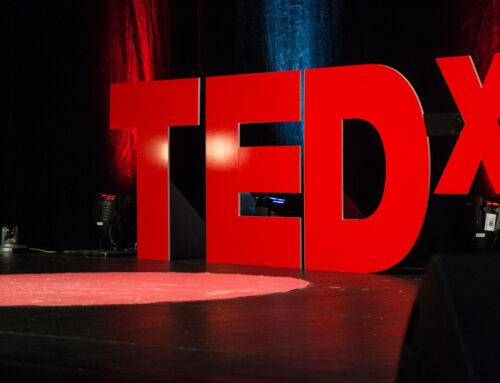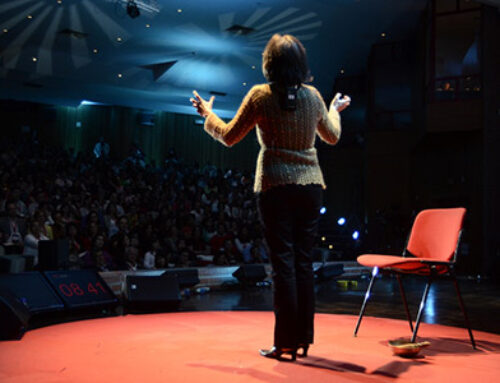Everyone knows about TEDx. Conferences touched, inspired, and motivated the hearts and minds of millions of people. Conferences are on technology, Entertainment, and Design. Topics range from science to business to global issues, TEDx speaks on almost any subject in more than 100 languages. Meanwhile, independently run TEDx events help share ideas in communities around the world. The history of TEDx goes all the way back to the 1980s.
The History of TED and The History Of Tedx
TED is a nonprofit devoted to spreading ideas, usually in the form of short, powerful talks (18 minutes or less). TED began in 1984 as a conference where Technology, Entertainment, and Design converged, and today covers almost all topics — from science to business to global issues — in more than 100 languages. Meanwhile, independently run TEDx events help share ideas in communities around the world.
Emmy-winning broadcast and graphic designer Harry Marks created TED in 1984. Architect and graphic designer Richard Saul Wurman, who observed a convergence of the fields of technology, entertainment, and design (that is, “TED”). The first conference organized that same year by Marks and Wurman with help from Dr. Frank Stanton featured demos of the compact disc, co-developed by Philips and Sony, and one of the first demonstrations of the Apple Macintosh computer.
Presentations were given by famous mathematician Benoit Mandelbrot and influential members of the digerati community. The event was financially unsuccessful; hence, it took six years before the second conference was organized.
What is TED?
TED is a global community, welcoming people from every discipline and culture who seek a deeper understanding of the world. We believe passionately in the power of ideas to change attitudes, lives, and, ultimately, the world. On TED.com, we are building a clearinghouse of free knowledge from the world’s most inspired thinkers — and a community of curious souls to engage with ideas and each other, both online and at TED and TEDx events around the world, all year long.
Richard Saul Wurman
TED was conceived by Richard Saul Wurman in February 1984 as a conference. Since 1990, he has annually held TED. TED’s early emphasis was on technology and design, consistent with its Silicon Valley origins
Chris Anderson
Chris Anderson owns and curates TED. He is a British-American businessman. The main TED conference is held annually in Vancouver, British Columbia, Canada at the Vancouver Convention Centre. The very first TED conference in 1984 featured a demonstration of the compact disc, an e-book reader, and a presentation by fractal mathematician Benoit Mandelbrot. Despite the acclaimed speakers, the inaugural conference was a financial flop.
TED2
TED2 was held at the Monterey Conference Center in California in 1990. From then on, a growing community that called themselves “TEDsters”. They would gather annually with Wurman leading the conference in Monterey until 2009. Initially, the speakers been from technology, entertainment, and design backgrounds. However, during the nineties, the roster of presenters broadened. They included scientists, philosophers, musicians, religious leaders, philanthropists, and many others.
In 2000, Wurman, looking for a successor at age 65, met with new-media entrepreneur and TED enthusiast Chris Anderson to discuss future happenings. Anderson’s UK media company Future bought TED. In November 2001, Anderson’s non-profit The Sapling Foundation (motto: “fostering the spread of great ideas”) acquired TED from the Future for £6m. In February 2002, Anderson gave a TED Talk in which he explained his vision of the conference and his future role of curator. Wurman left after the 2002 conference.
In 2006, attendance cost was $4,400 per person. It was by invitation only. The fee was $6,000 in 2007. This included the attendance of the conference, club mailings, networking tools, and conference DVDs. The 2018 conference was $10,000 per attendee.
Between 2001 and 2006, TED upgraded its platform to have TED talks online for free, added TED Global that became a worldwide conference, and created the TED prize.
TED Global
In 2005, under Anderson’s supervision, a more internationally oriented sister conference was added. It was held, in chronological order: in Oxford, UK (2005), in Arusha, Tanzania (2007, titled TED Africa), in Oxford again (2009 and 2010), and in Edinburgh, UK (2011, 2012, and 2013). In 2014, it was held in Rio de Janeiro, Brazil. Additionally, there was TED India, in Mysore (2009) and TED Global London in London (2015).
TED’s European director (and curator of TED Global) is Swiss-born Bruno Giussani. TEDx are independent events like TED in presentation. They can be organized by anyone with a TED license. A license holder must agree to follow certain principles. TEDx events are non-profit. However, organizers may use an admission fee or commercial sponsorship to cover costs. Speakers are not paid. They must also relinquish the copyrights to their materials. Then, TED may edit and distribute under a Creative Commons license.
In January 2014, the TEDx Talks library contained some 30,000 films and presentations from more than 130 countries. As of October 2017, the TEDx archive surpassed 100,000 talks. TEDx events raised up from five in June 2012, the previous year, in 133 countries. TEDx presentations may include live performances. These are in the TEDx Music Project catalog.
TED In A Box
In 2011, TED began a program called “TEDx in a Box”. This enabled people in developing countries to hold TEDx events. TEDx also expanded to include TEDx Youth events, TEDx corporate events, and TEDx Women. TEDx Youth events are independent programs for students grades 7–12. These events usually have audiences of people close to the age of the students and sometimes show TED Talks. According to TEDx Santa Cruz, “as of 2015, over 1,500 [TEDx events] have been scheduled all over the world.
TEDx events have evolved over time. Events such as TEDx Beacon Street created TEDx Adventures for participants. People may sign up for free, hands-on experiences in their local communities, led by an expert.
TED-Ed is a YouTube channel from Ted that creates short animated educational videos. It also has its own website. Current advisers for Ted-Ed lessons include Aaron Sam’s, Jackie Bezos, John Hunter, Jonathan Bergmann, Sir Ken Robinson, Melinda French Gates, and Salman Khan. It has over 10 million subscribers and over 1.5 billion views as of September 2019.






